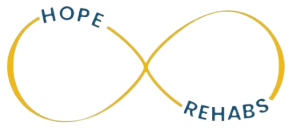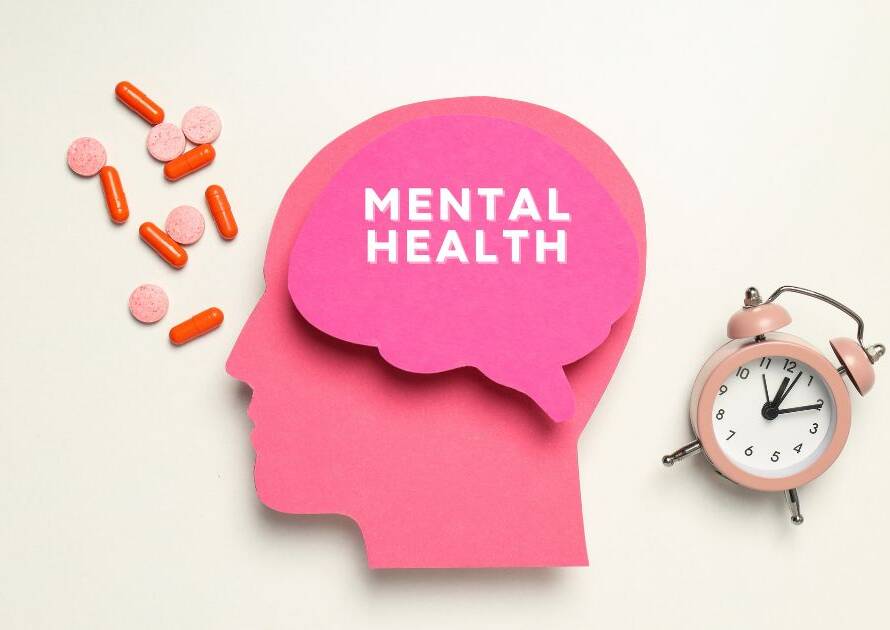Drug addiction can feel like a heavy fog, clouding your health, relationships, and sense of purpose. For those grappling with it or their loved ones searching for solutions, the path to recovery can seem overwhelming, but it’s a journey brimming with hope. By recognizing addiction’s signs and understanding the steps to healing, you can take control. In this blog, we’ll dive into the effects of different substances, the recovery process from detox to therapy, and strategies to stay sober. We’ll also showcase how Hope Rehabs provides compassionate, comprehensive drug addiction treatment to light the way forward.
Understanding Addiction: A Widespread Issue
Addiction doesn’t strike overnight instead it creeps in, often starting with occasional use or as a way to cope with stress, then turning into dependence. The National Institute on Drug Abuse (NIDA) reports that over 20 million Americans face substance use disorders each year, highlighting the critical need for accessible . Catching it early can prevent deeper harm, making it essential to know how addiction takes root and what recovery involves.
Effects by Substance: Spotting the Red Flags
Each substance leaves a unique mark on your body and mind. Here’s how common substances show up:
- Opioids (example, heroin, prescription painkillers): You might feel a euphoric rush, then drowsiness or slowed breathing. Withdrawal hits with nausea, muscle aches, and gripping anxiety, and over time, you need more to feel the effect.
- Stimulants (example, cocaine, methamphetamine): These spark a surge of energy or euphoria, sometimes with paranoia. Coming down feels brutal—exhaustion, depression, and intense cravings.
- Alcohol: Heavy use fogs memory, harms the liver, and stirs mood swings. Withdrawal can bring tremors, seizures, or severe delirium.
- Benzodiazepines (example, Xanax, Valium): These ease anxiety but can cloud memory and build dependence. Stopping abruptly may cause seizures or panic.
- Cannabis: Long-term use can sap motivation, impair memory, or spike anxiety. Withdrawal often means irritability, sleeplessness, or appetite shifts.
Spotting these signs is key to seeking drug addiction treatment that fits your needs.
The Recovery Journey: Step by Step
Recovery is deeply personal but follows a structured path to heal your body, mind, and relationships. Here’s how it comes together:
Drug Detox Services: A Safe First Step
The journey begins with drug detox services, where your body clears out the substance. Withdrawal can be rough, which is why medical oversight is crucial. At Hope Rehabs, doctors use medications like buprenorphine for opioids to ease discomfort, keeping you safe and supported. Detox is just the starting line, paving the way for deeper work.
Inpatient Drug Rehab: A Place to Heal
For those needing a structured environment, inpatient drug rehab offers a safe space with 24/7 care. You stay at the facility, away from triggers, diving into recovery through counseling, group therapy, and Cognitive Behavioral Therapy (CBT). Programs, often 30–90 days, are ideal for severe addictions or those with mental health struggles.
Outpatient Substance Abuse Treatment: Balancing Life and Recovery
If you’re ready to weave recovery into daily life, substance abuse treatment through outpatient programs offers flexibility. You attend therapy sessions while living at home, with Intensive Outpatient Programs (IOPs) providing extra support for skills like relapse prevention. This works well for milder cases or after inpatient care.
Therapy and Counseling: Healing from Within
Therapy gets to the heart of addiction, helping you understand its roots. At Hope Rehabs, you’ll find:
- CBT: Helps you identify and manage triggers.
- Family Therapy: Mends bonds with loved ones.
- Motivational Interviewing: Boosts your commitment to sobriety.
- 12-Step Programs: Connects you with a community that understands.
These tools empower you to build a new chapter.
Relapse Prevention: Staying Strong
Relapse isn’t a dead end but it’s a bump in the road, common in chronic conditions like addiction. Relapse prevention means knowing your triggers (stress, old haunts) and having a plan such as think mindfulness, exercise, or support groups. Aftercare, like sober living or ongoing therapy, keeps you steady.
Hope Rehabs: Your Partner in Recovery
Hope Rehabs is more than a rehab center; it’s a beacon of hope. As one of the UK’s top drug rehab centers, they offer a holistic approach, blending medical care, emotional support, and practical tools to help you thrive.
Comprehensive Care at Hope Rehabs
- Medical Supervision: Safe detox with 24/7 oversight to ease withdrawal.
- Counseling: Tailored therapy to tackle addiction’s causes.
- Family Therapy: Healing for you and your family.
- Aftercare: Ongoing support through outpatient care and community ties.
Their approach aligns with NIDA’s call for integrated care, making Hope Rehabs a trusted choice for drug addiction treatment.
Common Myths About Rehab
Misinformation can stop you from seeking help. Let’s clear up some myths:
- Rehab is only for “rock bottom.” Early action often leads to better results.
- Seeking help shows weakness. It’s a bold, brave step.
- Treatment isn’t private. Hope Rehabs ensures strict confidentiality.
- I can quit on my own. Professional support greatly improves success rates.
Why Act Now?
The National Institute on Drug Abuse emphasizes that timely treatment can reduce addiction’s impact on individuals and society. Whether you’re seeing early signs or supporting someone you love, acting now can change everything.
Global Impact by the Numbers
- Over 20 million Americans face substance use disorders yearly (SAMHSA).
- Nearly 27% of Indian youth aged 10–24 struggle with substance abuse (studies).
- In the UK, 2.7 million adults recently used drugs (NHS data).
Don’t let addiction write your story. Hope Rehabs offers compassionate, confidential care to guide you toward sobriety.
Call to Action
Take the first step toward a brighter future. Contact Hope Rehabs today for a confidential evaluation. Healing begins with hope and courage.
Frequently Asked Questions (FAQs)
- Can I go to rehab if I’m dependent but not “addicted”?
Yes. Dependence; physical or emotional can hurt your health, even without full addiction. Rehab addresses root issues and builds coping skills to stop things from worsening.
- How do I convince someone to seek rehab if they’re in denial?
Approach with care, highlighting how their substance use affects their life or loved ones. A professional interventionist or therapist can guide a supportive conversation.
- Is outpatient rehab as effective as inpatient?
It depends. Outpatient suits milder cases with strong support, while inpatient drug rehab offers structure for severe addictions or frequent relapses.
- What’s the first day in rehab like?
You’ll be welcomed warmly, with medical and psychological assessments, and possibly detox. The first 24–48 hours can feel intense, but Hope Rehabs staff offer round-the-clock support to ease you in.


